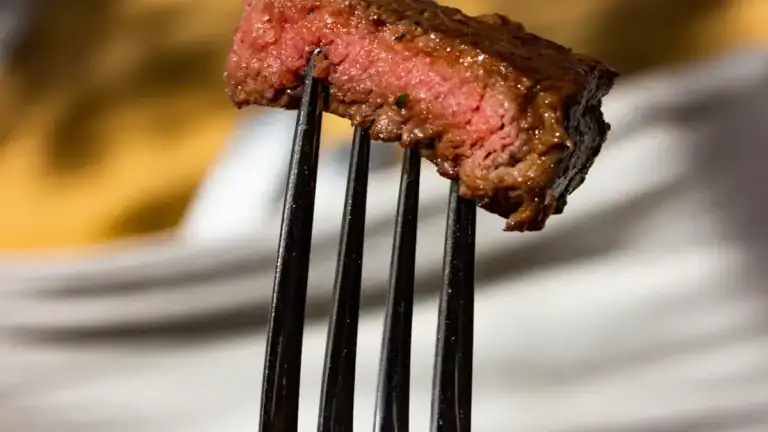
If you begin the carnivore diet, your body may change, and you might experience some Carnivore Diet Side Effects in the first weeks. Many people report headaches, diarrhea, or constipation. You could feel dizzy, have cravings, or get cramps. Some individuals also experience bad breath or heart palpitations. You might feel irritable or have trouble focusing.
While these Carnivore Diet Side Effects are common, they usually go away over time. It’s important to listen to your body and drink enough water. If you feel something is wrong, talk to a healthcare professional.
Key Takeaways
You may get headaches, stomach problems, or mood changes when you start the carnivore diet. These side effects often get better after a few weeks.
Drink lots of water and add salt to your food. This helps you stay hydrated and keeps your electrolytes balanced. It can help stop cramps and tiredness.
Watch how your body reacts to the diet. Keep track of your energy, mood, and digestion. This helps you learn what works for you.
Be patient as your body gets used to the carnivore diet. Give yourself time to adjust. Listen to your cravings to help guide you.
Talk to a doctor if you have strong symptoms or if side effects do not go away. Getting help early can keep you healthy.
Carnivore Diet Overview
What Is the Carnivore Diet
You might wonder what the carnivore diet is all about. This eating plan focuses only on animal foods. You eat meat, fish, eggs, and sometimes dairy. You do not eat any plant-based foods. Many people call it a meat-only diet because you skip fruits, vegetables, grains, and even nuts. The carnivore diet is high in protein and has almost no carbs. You get your energy from animal fats and proteins instead of sugars or starches. The following is some research I came across regarding this :
Here’s a quick look at the main ideas and foods you can eat:
Core Principles | Typical Food Choices |
|---|---|
Exclusive consumption of animal products | Meat, fish, eggs, some dairy |
High-protein, zero-carb diet | Beef, chicken, seafood |
Elimination of all plant-based foods | Dairy (optional, based on tolerance) |
You do not have to count carbs or fat like you would on other diets. The carnivore diet stands out because you only eat animal foods. Some people choose this diet to help with weight loss or to see if it helps with certain health problems.
Why Side Effects Occur
When you switch to a meat-only diet, your body needs time to adjust. You stop eating carbs, so your body starts burning fat for energy. This change can make you feel tired at first. You might notice bad breath because your body makes ketones as it burns fat. You could also have constipation since you are not eating fiber from plants. Some people feel low energy or need to use the bathroom more often. These side effects happen because your body is learning to use a new fuel source. Most people find that these changes get better after a few weeks on the carnivore diet.
Common Side Effects
When you start the carnivore diet, you might notice some changes in your body. These changes are called carnivore diet side effects. Most of these side effects happen during the first few weeks as your body gets used to eating only animal foods. Here’s what you can expect:
Digestive Issues
Digestive issues are some of the most common side effects when you switch to a carnivore diet. Your body needs time to adjust to the lack of fiber from plant foods. You may notice:
Constipation, which affects about 30% of people starting this diet.
Diarrhea, which happens to around 20% of new carnivore eaters.
A big drop in how often you have bowel movements—about 60% of people report this.
Some people feel bloated or have belly pain.
Others may have temporary diarrhea as their gut adapts.
Millions of people deal with pain, bloating, diarrhea, and constipation every day. If you have IBS or other gut problems, you might see improvements after switching to the carnivore diet. Some people with Crohn’s disease have reported less belly pain and fewer loose stools after making the change. Still, digestive issues like diarrhea or constipation are very common side effects at first.
Tip: Your gut needs time to adapt to the new way of eating. Some people adjust quickly, while others take longer.
Carnivore Flu
You may hear people talk about the “carnivore flu.” This is a group of short-term side effects that can show up during the first days or weeks. These symptoms happen as your body switches from burning carbs to burning fat for energy.
Symptoms | How Long They Last |
|---|---|
Digestive issues | 1 day to 3 weeks |
Fatigue | 1 day to 3 weeks |
Cramps | 1 day to 3 weeks |
Headaches | 1 day to 3 weeks |
Irritability | 1 day to 3 weeks |
Brain fog | 1 day to 3 weeks |
You might feel tired, get headaches, or have cramps. Some people feel irritable or have trouble thinking clearly. If you ate a lot of carbs before, these symptoms can last up to two weeks. If you already ate low-carb, you might only feel these side effects for a few days. Most people feel better by the third week and start to feel more energetic.
Dehydration and Cravings
Switching to a carnivore diet can change how your body handles water and minerals. When you stop eating carbs, your insulin levels drop. This makes your body lose more water and important minerals like sodium, potassium, and magnesium. You may notice:
Muscle cramps or twitches
Headaches or dizziness
Low energy or trouble focusing
Poor sleep or trouble relaxing your muscles
You might also feel cravings, especially for sweets or snacks you used to eat. These cravings can show up after meals, late at night, or when you feel stressed or bored. Sometimes, you may feel hungry even after eating a big meal. These cravings are normal and are part of the adjustment to the carnivore diet.
Note: Sip water throughout the day and try to get enough electrolytes to help with these side effects.
Mood Swings
Mood swings are another common side effect when you start the carnivore diet. Your hormones can change as your body adapts. You might feel more irritable, anxious, or even sad. High dietary restriction and fasting can also affect your hormones, which may change your mood, menstrual cycle, or even thyroid function. If you have a history of hormone problems, you should talk to your doctor before starting this diet.
Sleep Changes
You may notice changes in your sleep when you begin the carnivore diet. Some people say they sleep better and feel more rested, but others have trouble falling asleep or wake up more often. You might need to use the bathroom more at night because your body is losing more water. Hormonal changes can also affect your sleep quality.
Remember: Most of these short-term side effects are temporary. Your body needs time to adjust to the new way of eating. If you notice heart palpitations or feel unwell, pay attention to your symptoms and talk to a healthcare provider if needed.
Managing Side Effects
Hydration and Electrolytes
You may ask what helps most with carnivore diet side effects. Drinking enough water and keeping your electrolytes balanced is very important. On the carnivore diet, your body loses water and minerals fast. You should drink lots of water every day. Add unrefined salt to your food to get more sodium.
This helps your body use water well and stops headaches or tiredness. Electrolytes like sodium, potassium, and magnesium help your muscles and mind work right. If you feel cramps or dizzy, you might have an imbalance. Eat foods like beef, fish, and eggs because they have many minerals. Stay away from processed foods and sugary drinks. These can make electrolyte problems worse.
Tip: Drink water often and eat foods with lots of minerals. Do not eat packaged snacks or sodas.
Easing Adaptation
How can you make starting the carnivore diet easier? Go slow. Give your body time to get used to it. Begin with fatty meats and eat more fat. Try to balance fat and protein. This helps you feel full and keeps your energy up. If you want sweets or snacks, pay attention to your body. Sometimes cravings mean you need more fat or protein. Talk to others who eat the carnivore diet. Sharing ideas and tips can help you a lot.
Top strategies for easing adaptation:
Drink water often and add electrolytes.
Pick fatty meats to get more fat.
Give your stomach time to adjust.
Use cravings to learn what your body needs.
Join carnivore diet groups for support.
Monitoring Symptoms
Watch for signs that show how your body is doing on the diet. Look for headaches, cramps, bad breath, heart palpitations, irritability, and trouble focusing. Check your water and electrolyte levels. If you see signs of imbalance, change your foods or add more minerals. Getting bloodwork can help you find problems like nutrient deficiency early.
Strategy | Description |
|---|---|
Dietary Adjustments | Try different amounts of fat and protein to see what works best |
Monitoring Health | Get bloodwork to check for problems or imbalance |
When to Seek Help
Some signs mean you should talk to a doctor. Heart palpitations can mean you have an electrolyte problem. Bad constipation may show you are missing something or have risks from no fiber. If your symptoms do not get better or get worse, talk to a healthcare professional who knows about the carnivore diet. They can help you fix serious side effects and keep you safe.
Note: Always pay attention to your body. If you feel sick or notice new problems, get help right away.
Long-Term Considerations and Benefits
Tracking Progress
When you follow the carnivore diet, it is good to watch your body for changes. Tracking your progress helps you know what is working.
I’m personally recommend to you use a journal or an app to write down how you feel. You can also track your energy and weight changes. Some people check their blood to see cholesterol and triglyceride levels. Others use tests to see how their gut health changes. Here’s a table that shows what you might want to track:
Metric | Expected Outcome |
|---|---|
Gut Health | Look for changes in digestion |
Blood Panels | Watch cholesterol and triglycerides |
Inflammation Markers | See if joint pain changes |
You may see better energy, mood, or digestion. These changes help you learn about the benefits and side effects of the carnivore diet.
Potential Benefits
You might want to know what good things can happen on the carnivore diet. Many people say they lose weight and feel less bloated. Some people say they can focus better.
Others have fewer cravings and feel more calm. The carnivore diet may help lower inflammation and give you more energy. People with autoimmune problems sometimes feel better. Your skin may look clearer and you might sleep better. You could have better blood sugar and less joint pain. Remember, everyone’s body is different, so your results may not be the same as others.
Tip: Write down your benefits every month. This helps you see changes and keeps you motivated.
Health Monitoring
Some side effects can show up after many months or years on the carnivore diet. You need to watch for signs that your health is changing. Some things to look for are missing nutrients, heart problems, or changes in your gut. Here’s a table that shows what you should watch out for:
Health Concern | Description |
|---|---|
Nutrient Deficiencies | Not enough potassium or phytonutrients can make your immune system weaker. |
Cardiovascular Health Risks | Eating a lot of saturated fat may raise cholesterol and heart disease risk. |
Gut Microbiome Disruption | Less fiber can change your gut bacteria and cause inflammation. |
Kidney and Liver Function Concerns | Eating a lot of protein can be hard on your kidneys and liver, especially if you have health issues. |
Bone Health Issues | Not enough calcium or vitamin K can make bones weaker. |
Cancer Risk | Eating a lot of red meat may raise your risk for some cancers. |
Mental Health Implications | Missing nutrients can change your mood and thinking. |
To keep your health strong, you should talk to your doctor. Here’s what you can do:
Talk to your healthcare provider about your diet.
Get lab tests often to watch for changes.
Set goals that fit your life.
Think about if the carnivore diet works for you long-term.
You can stay healthy by watching for side effects and making changes when needed. Regular check-ups help you find problems early and keep enjoying the carnivore diet.
You may get headaches or cramps when you start the carnivore diet. Most of these side effects go away as your body gets used to it. Drinking water and adding salt can help you feel better. Here is a table with some ways to help:
Strategy | Action |
|---|---|
Hydration | Drink water, add salt, use electrolytes if needed |
Supplement | Try magnesium or potassium if you feel low on energy |
If you plan your meals and keep track of how you feel, it helps a lot. Talking to others who eat this way can give you support. Always ask your doctor before making big changes. With good planning, you can enjoy the carnivore diet and stay safe.




